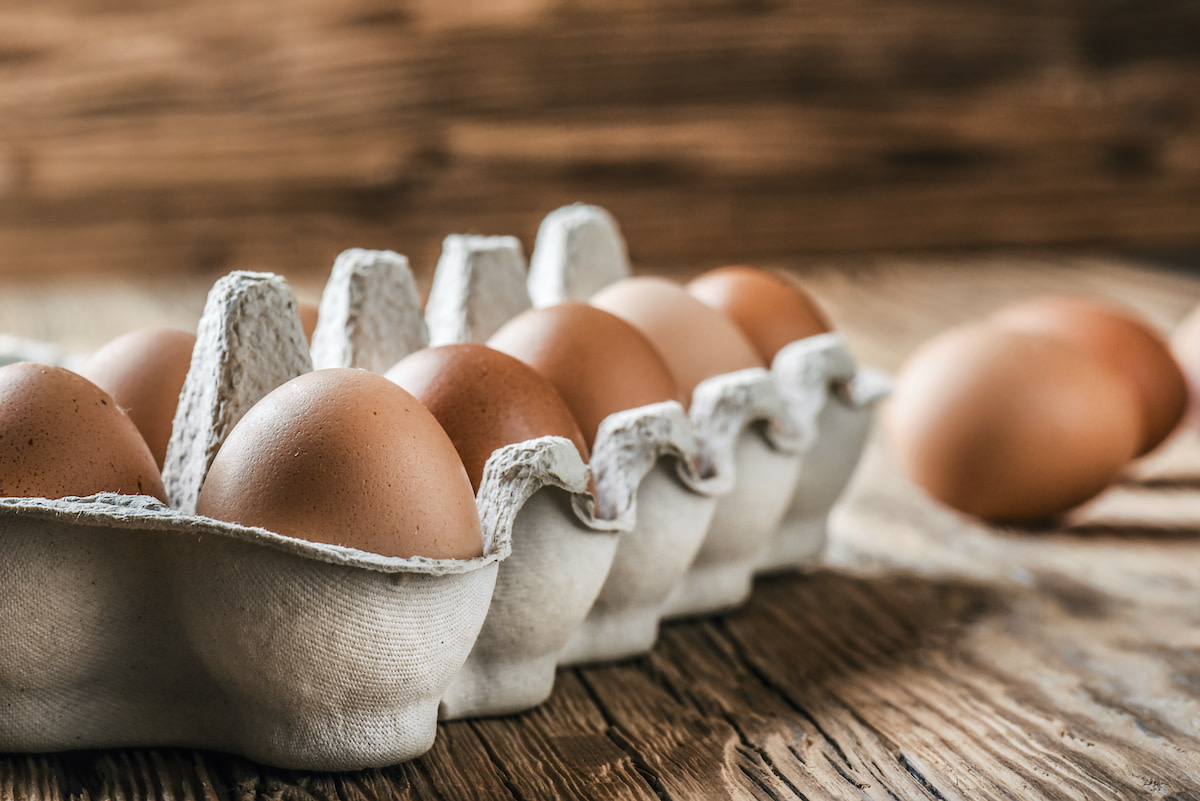How to Tell if an Egg Is Good: 4 Ways to Check the Freshness
Written by MasterClass
Last updated: Aug 24, 2021 • 3 min read
Learning how to tell if an egg is good can be important for avoiding food-related illness. If you no longer have the egg carton printed with the egg’s expiration date, there are other methods to determine the egg’s freshness.
Learn From the Best
The Importance of an Egg’s Freshness
Fresh eggs typically carry less risk of making you sick if you eat them and will behave more predictably as an ingredient in recipes. Old eggs or bad eggs can carry salmonella or other bacteria that can make you ill or lead to serious food poisoning.
Older egg yolks are flatter than fresh egg yolks, meaning they break more easily; this can cause problems if you are poaching eggs or need to separate eggs (separate the egg yolks from the egg whites) for a baking recipe or other cooking recipe. Fresh eggs can be particularly important when you’re making a meringue, which requires beating egg whites until they become stiff. Egg whites from a fresher egg will hold their foam and be more stable so they won’t deflate as quickly.
When you’re making hard-boiled eggs, very fresh eggs are not the best choice, since older eggs (eggs that are at least two weeks old) will be easier to peel. Just be sure not to use spoiled eggs, which could negatively impact your health.
4 Ways to Check an Egg’s Freshness
An egg’s shelf life (when properly refrigerated at 40 degrees Fahrenheit or below) is approximately four to five weeks. The expiration date on an egg carton is a good guide and can be a reliable way to determine an egg’s freshness, but it’s not the only way to determine if an egg is still good.
- 1. Smell fresh eggs. Crack a raw egg and perform the sniff test. If the egg has no odor, it is typically safe to eat. Rotten eggs smell like sulfur and you should dispose of them.
- 2. Perform the egg float test. This method is also known as the water test. As an egg ages, the air cell between the egg white and the shell begins to fill with air. If you place an egg in a bowl of water and the egg sinks to the bottom of the bowl, it’s fresh. If the egg floats to the middle of the bowl, it’s a few weeks old. If the egg floats to the top of the bowl, it’s likely at least three weeks old. Keep in mind that just because an egg has air inside, it does not mean the egg is rotten—it only means the egg is more than two to three weeks old.
- 3. Look at the “sell by” date. Find the “sell by” date on the carton of eggs and use it as a guide. Typically, eggs can remain safe to eat a week or two after the “sell by” date on the packaging. Note that the “sell by” date is sometimes conflated with the “best by” date (or “use by” date), but they are not the same thing. A “sell by” date leaves time for a consumer to conceivably enjoy the product before it would begin to spoil, whereas a “best by” date is an expiration date—the point at which the product should begin deteriorating or spoiling.
- 4. Calculate the Julian date. Look for a three-digit code on the egg carton—this is the Julian calendar date. The number (which ranges from 001, which is January 1, to 365, which is December 31) refers to the day of the year that a distributor packed the egg. A properly stored egg will remain fresh for four to five weeks after its pack date.
Want to Learn More About Cooking?
Become a better chef with the MasterClass Annual Membership. Gain access to exclusive video lessons taught by the world’s best, including Alice Waters, Gabriela Cámara, Niki Nakayama, Chef Thomas Keller, Gordon Ramsay, Yotam Ottolenghi, Dominique Ansel, and more.
